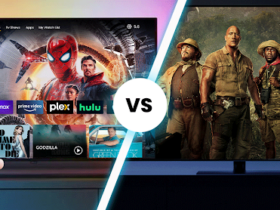
In the digital era, where consumers are inundated with an abundance of content choices, the role of content recommendation systems has become increasingly pivotal. This is especially true in the realm of Internet Protocol Television (IPTV), where personalized recommendations not only enhance viewer satisfaction but also drive engagement and retention. This blog explores the significance of content recommendation systems in IPTV, the techniques used for personalization, and their impact on the viewing experience.
For IPTV services visit this website:
Understanding Content Recommendation Systems in IPTV
Content recommendation systems in IPTV leverage algorithms and user data to suggest relevant TV shows, movies, and other content to viewers. These systems analyze various factors such as viewing history, preferences, ratings, and demographic information to deliver personalized recommendations tailored to each individual user.
1. Types of Recommendation Systems
Collaborative Filtering: This technique analyzes user behavior and preferences to recommend content based on similarities with other users who have similar tastes. It identifies patterns and correlations in viewing habits to make predictions about what a user might like.
Content-Based Filtering: This approach recommends content based on the attributes and characteristics of items that a user has previously liked or interacted with. It focuses on matching the features of content items (e.g., genre, actors, themes) to the user’s preferences.
Hybrid Recommendation Systems: Combining collaborative filtering and content-based filtering techniques, hybrid systems aim to overcome limitations and provide more accurate and diverse recommendations. They leverage the strengths of both approaches to enhance the overall recommendation quality.
2.Personalization Techniques:
User Profiling: IPTV platforms create user profiles that store data such as viewing history, genre preferences, ratings, and interactions with content. This data forms the basis for personalized recommendations tailored to individual tastes and interests.
Contextual Recommendations: Taking into account contextual factors such as time of day, day of the week, and current trends, IPTV recommendation systems adjust recommendations to align with the viewer’s current mood or viewing context.
Real-Time Updates: As users interact with content and preferences evolve, recommendation systems continuously update and refine their suggestions to reflect changing interests and behaviors.

Benefits of Personalized Content Recommendations
Implementing effective content recommendation systems in IPTV offers several benefits for both viewers and service providers:
Enhanced Viewer Engagement: By surfacing content that aligns with the viewer’s interests and preferences, personalized recommendations increase engagement and encourage longer viewing sessions.
Improved Content Discovery: Users are exposed to a broader range of content that they may not have discovered on their own, leading to a richer and more diverse viewing experience.
Increased Viewer Satisfaction: Tailored recommendations cater to individual tastes, enhancing viewer satisfaction by reducing the time spent searching for content and increasing the likelihood of finding something enjoyable to watch.
Retention and Loyalty: Personalization fosters a deeper connection between viewers and the IPTV platform, leading to higher retention rates and increased customer loyalty over time.

Challenges and Considerations
While personalized content recommendations offer significant advantages, several challenges and considerations must be addressed:
Privacy and Data Security: Handling sensitive user data requires robust privacy measures and compliance with data protection regulations to ensure user trust and confidentiality.
Algorithm Accuracy and Diversity: Balancing algorithmic accuracy with the need to provide diverse recommendations that cater to varying tastes and preferences remains a challenge for recommendation systems.
Transparency and User Control: Providing transparency in how recommendations are generated and offering users control over their preferences and settings are essential for fostering trust and satisfaction.

Future Trends and Innovations
Looking ahead, several trends and innovations are shaping the future of content recommendation systems in IPTV:
AI and Machine Learning: Advancements in AI and machine learning algorithms enable more sophisticated and predictive recommendation models that adapt to evolving user behaviors and preferences.
Integration with Voice and Gesture Controls: Incorporating voice recognition and gesture controls allows for intuitive and hands-free interaction with IPTV recommendation systems, enhancing user convenience and accessibility.
Social and Contextual Integration: Leveraging social media data and contextual information from IoT devices to further personalize recommendations based on social trends and real-time situational factors.
Conclusion
In conclusion, content recommendation systems play a crucial role in enhancing the IPTV viewing experience by providing personalized and relevant content suggestions to viewers. By leveraging advanced algorithms, user data, and personalized profiling techniques, IPTV providers can deliver tailored recommendations that increase engagement, satisfaction, and retention among their audience.

For the best IPTV services and Economical prices click on this link:
As technologies continue to evolve and consumer expectations evolve, the integration of effective recommendation systems will remain integral to driving innovation and delivering exceptional viewing experiences in the ever-changing landscape of IPTV. Embracing these advancements not only benefits viewers by making content discovery more seamless and enjoyable but also positions IPTV providers for sustained growth and success in the competitive media industry.










Leave a Reply